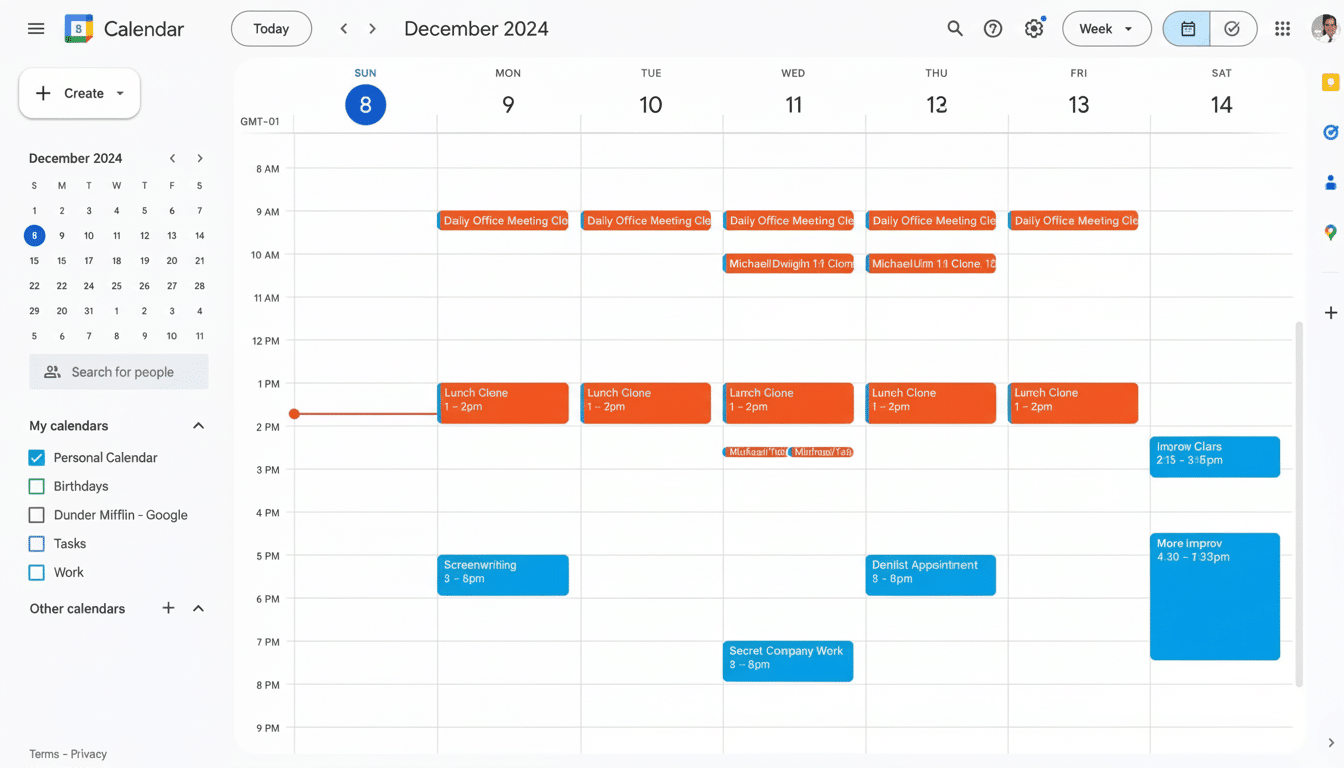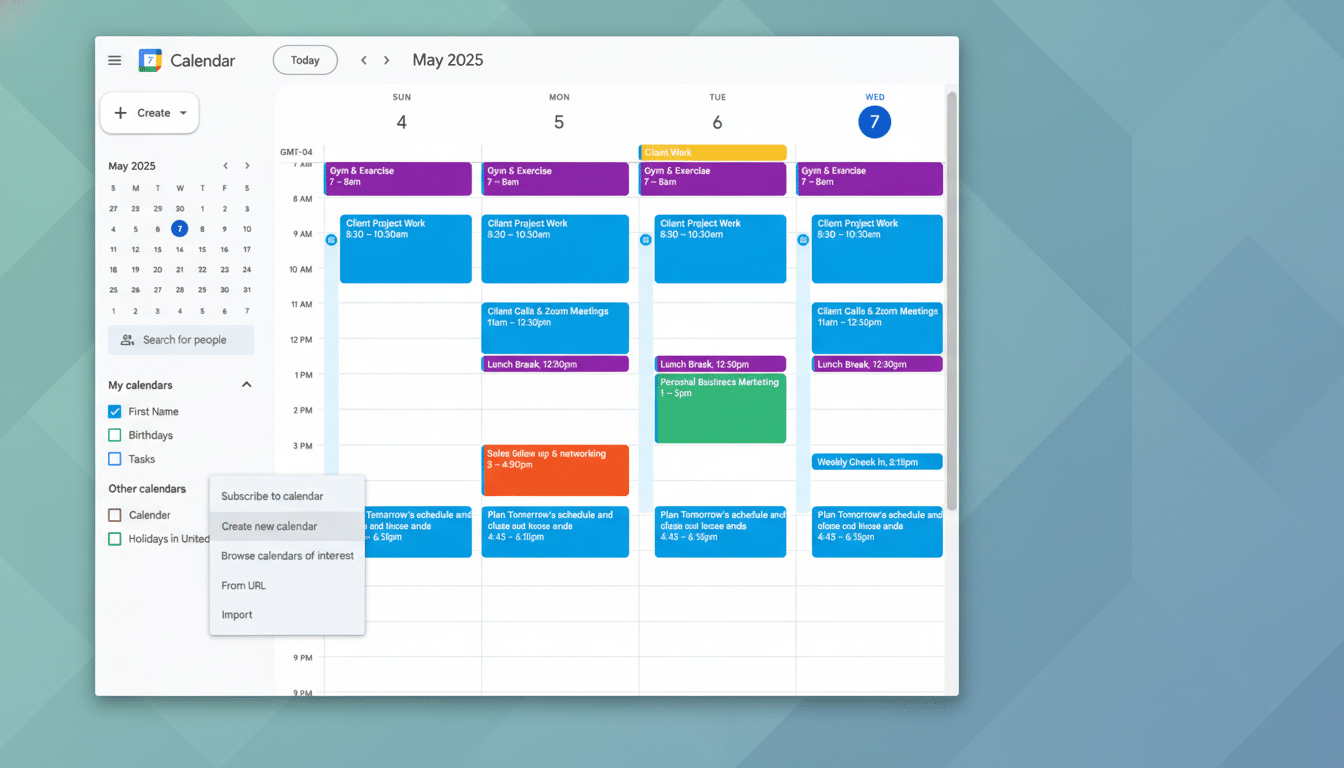If your inbox is a nightmare of longer and longer email chains, clear the decks because Google’s new Gemini-powered trick is going to save you from the nightmare that is planning when to actually meet. The new “Help me schedule” in Gmail suggests meeting slots, adds them to your reply, and then books the calendar event automatically when someone selects a time — no more back-and-forth, no double-booking.
Why Scheduling Takes It All Out of You
Coordinating meetings with people from across companies is messy because you can’t see the other person’s calendar and availability varies by the hour. Solutions like shared calendars or booking links can help, but they often don’t work smoothly with external contacts who use email or only have limited IT authorizations.

The friction adds up. Microsoft’s Work Trend Index has recorded a surge in meeting load since 2020, and productivity surveys by companies like Doodle have long connected shoddy workflows to billions lost in wasted hours. Scheduling is the hidden tax: quick messages that shatter focus, spread across days, and keep everyone waiting.
How Help Me Schedule Works Inside Gmail and Calendar
When an email hits your inbox asking for time — say, an hour-long catch-up — Gemini searches through your Google Calendar to find appropriate times that also line up with your working hours. You look over the suggested slots in Gmail’s composition window, change things like duration, location, or link to a video call, and drag options into your reply.
The recipient selects a time from the email. After they decide, Gemini schedules the meeting on both people’s calendars without sending another message. Basically, it’s a lightweight scheduling assistant that resides where the asking takes place: in your inbox.
Under the hood, it takes your constraints and context in the message as input, doing similar for about, out-of-office emails, etc., then synthesizes a shortlist of reasonable options. It reads your calendar, rather than the recipient’s — so it doesn’t expose any secret details of an event, and yet it still manages to base proposals on authentic availability.
What It Can’t Do and Where Gmail’s Assistant Falls Short
There are guardrails. To get one-click booking to work, however, both sender and recipient need to be using Gmail and Google Calendar. The feature is meant for one-on-one encounters, not groups. It’s also not a free pass to start peeking at everyone else’s calendars — Gemini limits itself to assessing your availability (unless someone has already given you access).
If your contact is on another email system or calendar, the injected choices can still serve as a clear proposal, but you may end up confirming manually. For team or cross-time-zone scheduling, traditional Calendar tools such as “Find a time” or specialized services may still be the better route.

Admins in Google Workspace should see the policy controls one might expect for enterprise features — on/off toggles for groups, data protections, and usage aligned with compliance requirements. The pitch, in short, is speed without selling out calendar privacy.
How It Compares to Other Scheduling Options Available
Unlike classic booking links from services like Calendly, Clockwise, or Reclaim, Gemini takes a different approach. Links can be effective at scale, but some recipients consider them impersonal or blocked by company policy. By staying within a typical email, Gemini preserves the conversational nature while automatically handling the hardest bit — finding times that work for both of you.
Microsoft’s Copilot in Outlook also assists with summarizing email threads and suggesting meetings, and Outlook’s built-in Scheduling Assistant works great within a single organization. Where Gemini shines is in external coordination: proposing customized time options even if you can’t check the other person’s calendar, and closing the loop automatically once your recipient accepts.
It is also indicative of a wider move toward “agentic” AI — tools that do stuff in other apps. Academics and industry analysts have cited systems like Gemini and Copilot as early examples of agents that read context, make decisions, and do tasks rather than simply write text.
Real-world impact and important caveats to consider
What about a sales manager setting up a check-in meeting with an outside company client? In the past, they might go back and forth three or four times over a couple of days. On Help me schedule, they suggest exact windows that are aligned with their calendar and you pick one — both calendars are updated in seconds. Multiply that by a team of account executives and the reclaimed hours add up.
Yet organizations should temper expectations. Atlassian’s own research on workplace AI indicates that, even as usage escalates, many teams are challenged to measure return on investment. Narrow but real is the efficiency win here: shaving minutes from every scheduling exchange. The real leaps will come when things like this can expand to small groups, provide richer cross-platform support, and integrate more seamlessly with meeting agendas and follow-ups.
For now, Gemini’s scheduling assist is a solution to an everyday annoyance with little learning curve. If your day is filled with emails that read “You got time?,” this could be the rare AI feature that quietly pays for itself — one booked slot at a time.

